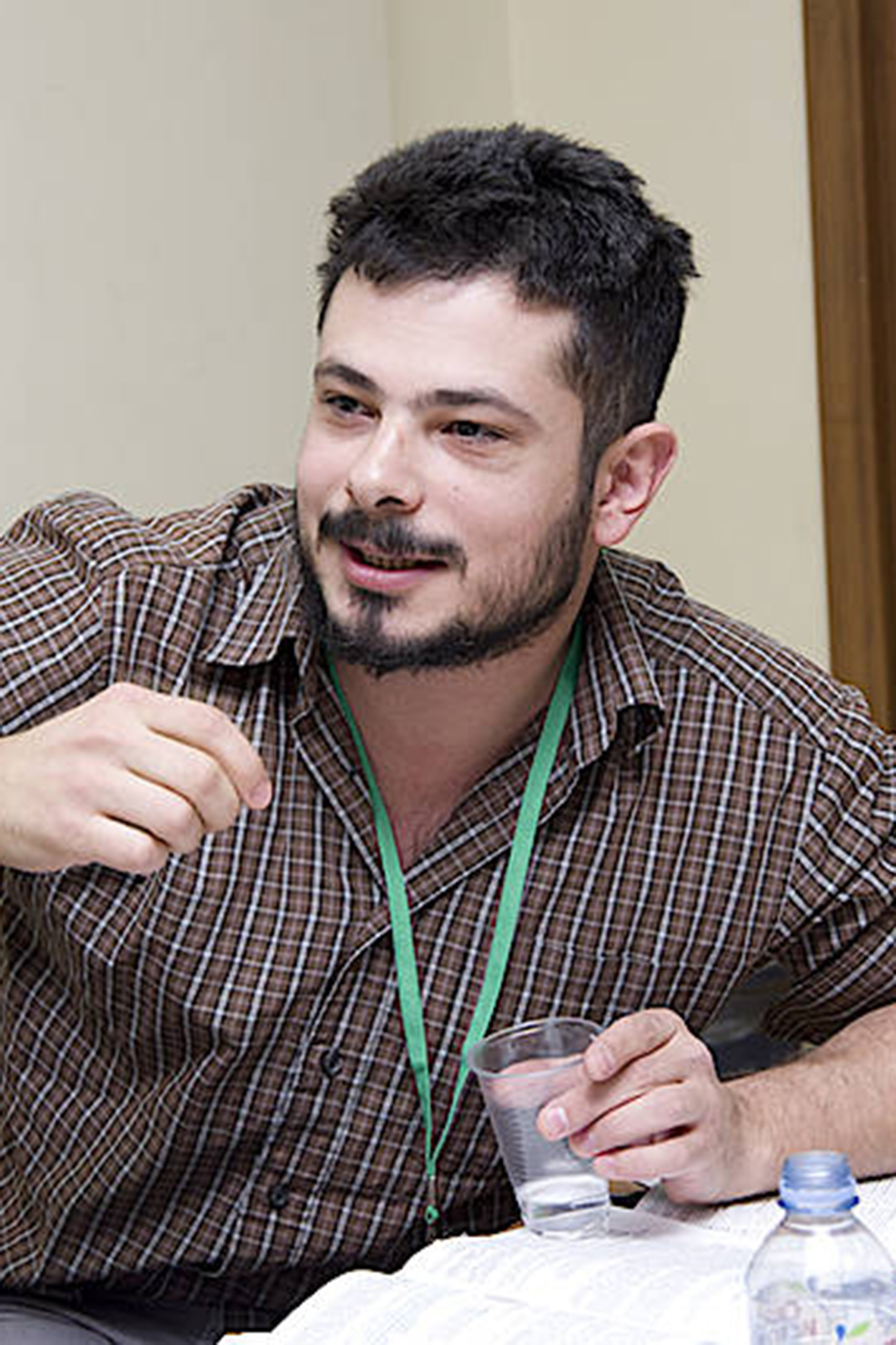Dear colleagues! My name is Evgeni Varshaver
I’m currently based in Moscow (Russia) and lead the Group for Ethnicity and Migration Research. For years in our research, we’ve been mostly concentrating on integration of migrants in Russia. We’ve researched on ‘ethnic enclaves’ in big Russian cities, ethnic cafes as spaces of migrants’ integration, migrants’ tie composition and its influence on their integration, held wide scale online surveys of migrants and even launched integration events as well as measured their effectiveness. All the way, however, theoretically-wise we’ve been interested in broader issues, which is ethnicity per se, how it manifests itself in different contexts, what is common, what is different and why. Last several years we’ve – step by step – started re-directing the main stream of our research to the topics related to ethnicity on the intersection between sociology/anthropology, history and cognitive sciences. As it is a quite recent effort, (as a contrast to our research, related to migration), the papers we write on ethnicity are currently published only as pre-prints. So, what do we do? Working within the constructivist framework, on the one hand, we agree with Andreas Wimmer and Kanchan Chandra, when they say that the more different versions of constructivism and constructivist research agendas there are – the faster constructivism develops and we move forward. On the other – we fulfill Rogers Brubaker’s agenda, best of all vocalized in ‘Ethnicity as Cognition’, and our big task is to produce a real synergy of social and cognitive sciences by making up innovative research designs and producing explanations which combine ideas from both disciplines. We have two ‘labs’ – locations where we test our ideas and do research. The first is Moscow, which is a big megalopolis and a former (some people say that also current) imperial capital. The second is Dagestan, a comparatively poor, ‘ethnic’ periphery of Russia, which, according to the dominant narrative, is a very ‘polyethnic’ location. Indeed there are about 40 official autochthonous ‘nationalities’ (the word of an ethnic group in Russian context). Based on that we produce more general theories of ethnicity as both a social and a cognitive phenomenon, which stretches from the past to the future. Here are the links to the texts. First – some theory. Constructivism doesn’t have a single proper conceptual language, which is necessary, however, to do empirical research, and my recent article is both suggesting such a language and showing (based on out research), how different phenomena, conceptualized within this language, can be ‘seen’ and researched. The name of the article speaks for itself, it is called “What Exactly is Studied When Ethnicity is Researched? A Descriptive Model for Constructivist Studies of Ethnicity in the Context of the Cognitive Turn”. Second – a block of articles, related to Dagestan. Our goal is to show, how an official classification, introduced by the Soviet authorities in 1920-s currently functions and how this functioning changed through time. For that reason – as a framework – I wrote a really brief ‘Brief history of Dagestani nationalities’, which was also an interesting task for me – to create a proper historical narrative about ethnicity while sticking to the constructivist framework. Then follow the results of our empirical research. The first is devoted to marital attitudes and how ethnicity shape them (spoiler: not that much). The second addresses the descent ‘rules’, according to which ethnic belonging is defined: we show that Dagestan is an arena of competition between patrilineal and ambilineal descent rules and explain how the occurring change from the first to the second rule ‘wipes out’ nationalities altogether. The third is devoted to folk concepts of ethnicity, shows that some Dagestanis believe that ethnic belonging is just a mark in id-document (we call that documentary constructivism) and reveals that this attitude is more common in those villages that were officially re-classified from one nationality to another. The fourth – as ethnicity is to big degree produced by the state in the course of a variety of formalized interacrtions – is our participant observation of census procedures during the 2020 census round. The fifth – is the result of our recent extensive fieldwork, where we addressed how ethnicity is habitualized by people and showed typical interactions within which ethnicity is ‘reproduced’ in Dagestan throughout lives of people from early childhood and further. Third – a research on mundane classifications done by people in Moscow. To find them out, we applied the video-elicitation method meaning that we shot some videos in Moscow mundane contexts (malls, metro, etc.), showed them to people of different background and asked to define ‘ethnic belonging’ of people on videos. We showed that people when categorizing other people spontaneously are ‘sandwiched’ between two classifications – by official nationalities and the vernacular one, which distinguished between ‘Slavs’ and ‘Southerners’. The text is a research report and it contains some other interesting and potentially insightful methodological and substantial things. Well, that’s basically all we have in English so far. It should be said that we write and research much more (but in Russian), moreover, we have a number of on-going projects on ethnicity within the described agenda. In one of them – which is based on a widescale all-Russian online survey – we show respondents some pictures, ask to describe them in one phrase, code the answers on the basis of whether ethnic category was mentioned in the description, and then run a regression explaining, why people ethnicise. In another we run an ML semantic analysis of Dagestani newspapers of 1939-1944 and by comparing them to the corresponding current time newspapers we explore the changing role of ethnic categories in Dagestani society. This summer we’ll be researching Bashkortostan, a new for us Russian region. That’s our agenda but what we lack is good conversations about all that and ethnicity in general. In case you got interested in something mentioned above – write us, we’ll be really happy to discuss it. Moreover, we are open to collaboration including the one which stretches beyond disciplines. Write me here: varshavere@gmail.com or let’s catch up on telegram (@EAV747)
Sincerely,
Evgeni A. Varshaver, Ph.D. Head of the Group for Migration and Ethnicity Research | |

